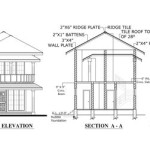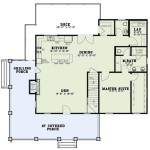House Evacuation Plan Template: Ensuring Your Family's Safety in Emergencies
Creating a house evacuation plan is a crucial step in ensuring the safety of your family members during emergencies like fires, natural disasters, or security threats. A well-structured plan provides a clear and organized approach to evacuating your home quickly and efficiently. Here's a comprehensive template to help you develop a robust house evacuation plan:1. Designated Meeting Place:
- Outside Area: Choose an easily accessible area outside your home, such as a park, a street corner, or a neighbor's yard, as the designated meeting place.
- Landmark: Select a prominent landmark near the meeting place, like a tree or a street sign, to make it easy for family members to locate and gather.
2. Evacuation Routes:
- Multiple Routes: Identify multiple evacuation routes from each room in your house. Consider different scenarios, such as blocked doors or smoky conditions.
- Primary Route: Choose a primary route that is the most direct and safe path to the designated meeting place. It should be free of obstacles and potential hazards.
- Secondary Route: Establish a secondary route as an alternative in case the primary route is blocked or inaccessible.
- Clear Pathways: Ensure that all evacuation routes are clear of clutter, furniture, and other obstructions that may impede movement.
3. Evacuation Procedure:
- Alarm Signal: Determine a specific alarm signal or call that will be used to alert family members about the need to evacuate.
- Calm and Orderly: Instruct family members to remain calm and follow the evacuation procedure without panic.
- Check for Others: Before evacuating, ensure that all family members, including children, elderly individuals, and pets, are accounted for.
- Use Designated Routes: Use the designated evacuation routes to quickly exit the house. Follow the primary route unless it is blocked.
- Stay Low: In case of smoke or fire, stay low to avoid smoke inhalation. Cover your nose and mouth with a damp cloth or piece of clothing.
- Do Not Go Back: Once you have evacuated the house, do not go back inside for any reason until authorities have declared it safe.
4. Emergency Contacts:
- Emergency Numbers: Keep a list of emergency contact numbers, including fire department, police, poison control, and local emergency services, near the phone.
- Out-of-Town Contact: Designate an out-of-town contact person who can be reached in case of an emergency to relay information and coordinate assistance.
5. Practice and Review:
- Regular Drills: Conduct regular evacuation drills with family members, including children, to ensure everyone understands the plan and can execute it efficiently.
- Review and Update: Review and update the evacuation plan periodically to reflect changes in household composition, structural modifications, or emergency procedures.

8 Home Evacuation Plan Templates Ms Word

How To Create A Fire Evacuation Plan Travelers Insurance

8 Home Evacuation Plan Templates Ms Word

Fire Escape Plans Ontario Association Of Chiefs

Fire Escape Plan Templates For Printing Maker

House Evacuation Plan How To Family Emergency

Home Escape Planning City Of Richmond Hill

Small Office Evacuation Plan Floor Layout
Emergency Evacuation Plans Mydraw

Evacuation Plan How To Prepare Make A Examples








